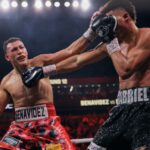Against All Odds: The Remarkable Journey of Emily Carter, a Trailblazer in Overcoming Disability
In the quiet suburbs of Portland, Oregon, Emily Carter’s story begins much like that of many children born with disabilities—surrounded by concern and doubt from those around her. Diagnosed with spina bifida at birth, Emily’s life was marked by physical limitations. She required a wheelchair to move and faced multiple surgeries before even reaching her teenage years. But what set Emily apart wasn’t the challenges she faced; it was her unwavering belief that those challenges would never define her future.
Early Years: Defying Expectations
Growing up, Emily had a loving family that supported her every step of the way, but that didn’t shield her from the harsh realities of living with a disability. In elementary school, Emily was frequently singled out as “different” by her peers. Recess, a time of joy for most children, was often a reminder of her limitations. She watched as other children ran and played, while she remained on the sidelines.
Despite these early experiences, Emily’s inner spirit was never dampened. Her parents instilled in her a mantra that she would carry throughout her life: “You are not your disability.” They encouraged her to pursue her interests, no matter how ambitious they seemed. And one day, Emily discovered a passion that would change everything: storytelling.
At the age of nine, Emily wrote her first short story. It was a simple tale about a young girl who flew to the moon, but for Emily, it was a revelation. Writing allowed her to explore worlds without limits, where her wheelchair vanished, and her imagination took over. From that moment on, Emily immersed herself in reading and writing, finding solace and strength in words.

Society’s Response: An Uphill Battle for Acceptance
As Emily grew older, she became increasingly aware of how society treated her differently. Whether it was the stares she received in public spaces or the low expectations people had for her future, the world outside her family often saw Emily’s disability before her abilities. The lack of accessible infrastructure in schools, libraries, and public venues reminded her daily that society wasn’t designed for people like her.
In middle school, one of the most difficult experiences came when Emily was told by a teacher that she might want to lower her career ambitions because “life is harder for people like you.” It was a moment that could have shattered her confidence, but Emily used it as fuel. Determined to prove the teacher wrong, she doubled down on her academic work and began to see herself not as someone to be pitied, but as someone who could help reshape societal attitudes.
Still, there were moments of isolation. Social gatherings were often difficult because friends would unintentionally exclude her by choosing venues that were not wheelchair accessible. Although these instances were rarely malicious, they served as constant reminders of how easy it was for society to overlook the needs of people with disabilities.
Navigating the Teenage Years: A Period of Growth and Turning Points
As Emily entered her teenage years, several key turning points shaped her journey. One of the most significant came when she was 14 years old. After a particularly grueling surgery, she spent months in physical therapy. During this period, Emily fell into a deep depression, questioning whether her dream of becoming a professional writer was realistic. However, it was during this difficult time that she discovered online writing communities.
Through these virtual spaces, Emily found a group of like-minded writers who valued her creativity, not her physical limitations. The support she received online, along with the encouragement of her family, reignited her passion for storytelling. This experience also marked a shift in how Emily viewed her disability—not as something to overcome but as part of her identity that added depth and perspective to her writing.
The second major turning point came during high school when Emily was selected to represent her school at a national writing competition. Her short story, which featured a protagonist with a disability navigating an ableist world, earned her first place. This win was a pivotal moment for Emily, as it validated her belief that her voice mattered and could make an impact.
University Life: Breaking Barriers in Academia
When it came time to apply for college, Emily set her sights on a prestigious writing program at New York University (NYU). Many advised her to stay closer to home, citing the challenges of moving across the country with a disability. But Emily wasn’t one to settle for a comfortable path. She applied to NYU, was accepted with a scholarship, and moved to New York City, determined to make her mark.
Life at NYU presented new hurdles. Navigating the busy streets of Manhattan in a wheelchair, finding accessible housing, and keeping up with the rigorous demands of her writing program often left Emily exhausted. Yet, she persevered. The city’s diversity and its vibrant literary scene invigorated her, pushing her to expand her writing in ways she hadn’t imagined. She explored genres ranging from fiction to poetry to memoir, all the while developing a unique voice shaped by her lived experiences.
During her junior year, Emily faced a major setback. A severe infection required her to undergo an emergency surgery, followed by months of recovery. For many, this would have been a breaking point, but not for Emily. From her hospital bed, she continued writing, even as her body healed. Her professors and friends rallied around her, providing the support she needed to finish the semester. It was a testament to her resilience and her refusal to let physical limitations stop her progress.
The Road to Success: Turning Pain into Purpose
Upon graduating from NYU with honors, Emily embarked on her career as a writer. Her first book, a collection of short stories titled Boundless, was published to critical acclaim. The stories were deeply personal, often drawing from her experiences of navigating a world not designed for people with disabilities. But they were also universal, exploring themes of resilience, identity, and the human spirit.
Boundless became a bestseller, and Emily quickly established herself as a rising star in the literary world. With her newfound platform, Emily became an advocate for people with disabilities in the arts. She worked tirelessly to promote inclusivity, pushing for more accessible spaces in both the physical and digital worlds of publishing. Emily’s advocacy extended beyond the written word; she became a public speaker, traveling the country to share her story and inspire others to pursue their dreams, regardless of the barriers they might face.
Her advocacy work led her to co-found the “Write Access” initiative, a non-profit organization dedicated to providing resources, mentorship, and accessible writing workshops to aspiring authors with disabilities. The initiative quickly gained traction, with hundreds of participants joining from around the world.
Recognition and Legacy
Today, Emily Carter is not only a successful author but also a role model for millions. Her work has earned numerous accolades, including a National Book Award nomination and recognition from the American Library Association for promoting diversity in literature.
Emily’s journey from a child with spina bifida, watching others play from the sidelines, to a celebrated author and activist, is nothing short of extraordinary. She continues to write, with plans for several new books that push the boundaries of genre and form, just as she’s pushed the boundaries of what society believes people with disabilities can achieve.
Her message is simple yet profound: “Disability doesn’t mean inability. It means living life on your own terms, even when the world tells you otherwise.”
Q&A with Emily Carter
Q: What advice would you give to young people with disabilities who feel limited by their circumstances?
Emily: “The most important thing is to not let the world tell you what you can and can’t do. You know your own capabilities better than anyone else. Surround yourself with people who believe in you and push you to be your best, but also understand that the journey will be hard. That’s what makes success so fulfilling. Your disability is just one part of you—it doesn’t define who you are or what you can accomplish.”
Q: How did writing help you cope with your challenges?
Emily: “Writing allowed me to explore worlds where I wasn’t limited by physical barriers. It gave me a voice when I felt I didn’t have one in real life. It’s a way of expressing myself, but also of connecting with others and showing them that life with a disability is rich, complex, and full of potential.”
The Lesson: Resilience and the Power of Belief
Emily Carter’s journey teaches us that true strength lies not in the absence of obstacles but in the courage to overcome them. Her story is a reminder that resilience, determination, and self-belief are the keys to success, no matter the circumstances. Emily never let her disability become an excuse; instead, she used it as a source of power and inspiration to fuel her dreams.
The lesson is clear: life’s greatest limitations are often those we impose on ourselves. Emily’s life shows us that, with perseverance and the right mindset, even the most daunting challenges can be transformed into opportunities for growth and success.








